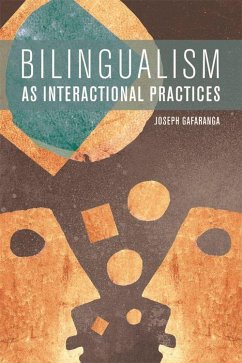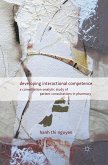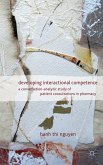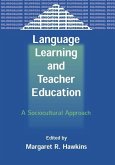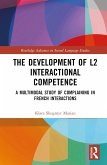'This latest book of Gafaranga's builds on his innovative research over many years and opens up a new field of enquiry that raises fundamental questions about the nature of bilingualism and its consequences for individuals and societies. It is rich in empirical data and creative ideas, and will appeal to a wide range of readers.' Li Wei, UCL Centre for Applied Linguistics, University College London Research on bilingualism and on code-switching in particular has traditionally been geared towards rehabilitating bilingualism and bilingual language use. From being seen as a sign of lack of competence, code-switching is now seen as a sign of high competence in the languages involved. However, this rehabilitation of bilingualism raises an entirely new problem: Where to from here? How can the study of bilingualism continue to be interesting and relevant? In order to overcome the challenges the discipline faces as a result of its own success, Joseph Gafaranga argues, the notion of bilingualism itself must be redefined. Bilingualism must be seen as consisting of diverse interactional practices and investigated as such. This book details the rehabilitation effort undertaken to get us where we are today, proposes a methodology that can be used in moving forward and illustrates this with three case studies, all the while inviting other researchers to contribute to this new research direction. Joseph Gafaranga is Senior Lecturer in the School of Philosophy, Psychology and Language Sciences at The University of Edinburgh Cover image: Two persons speak different languages (c) lolloj on Shutterstock Cover design: Paul Smith [EUP logo] edinburghuniversitypress.com ISBN 978-0-7486-7595-1 Barcode
Bitte wählen Sie Ihr Anliegen aus.
Rechnungen
Retourenschein anfordern
Bestellstatus
Storno

